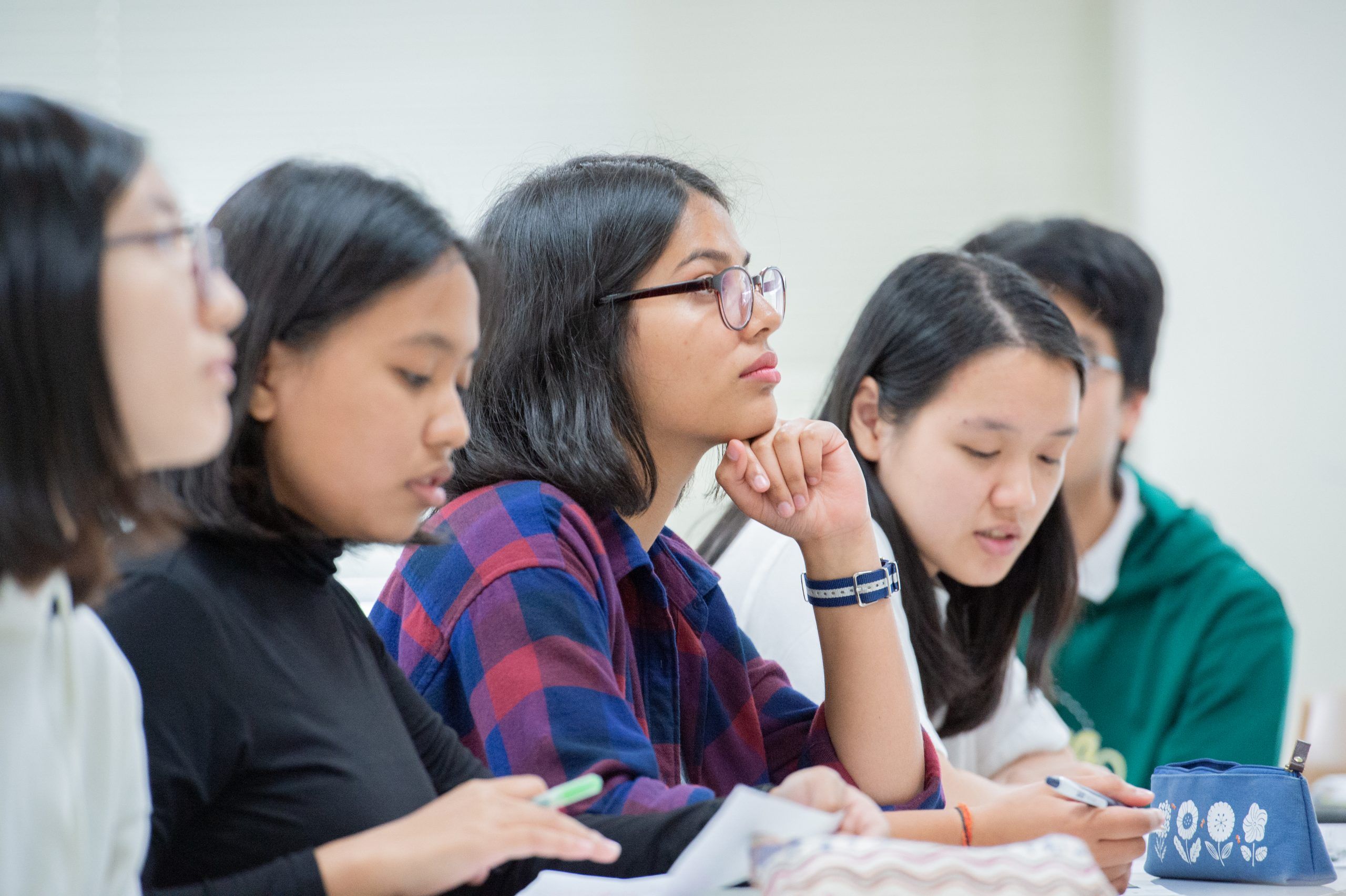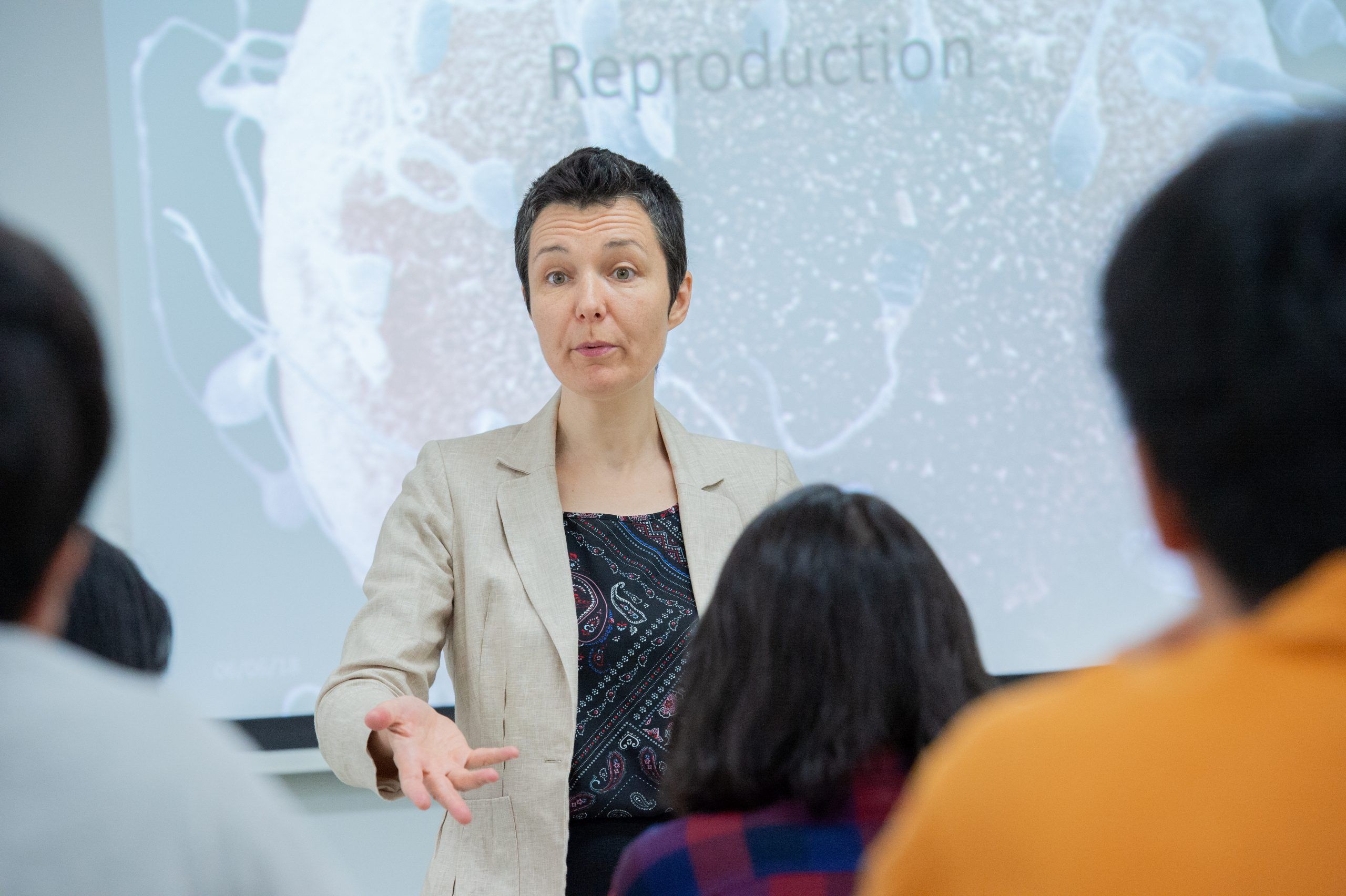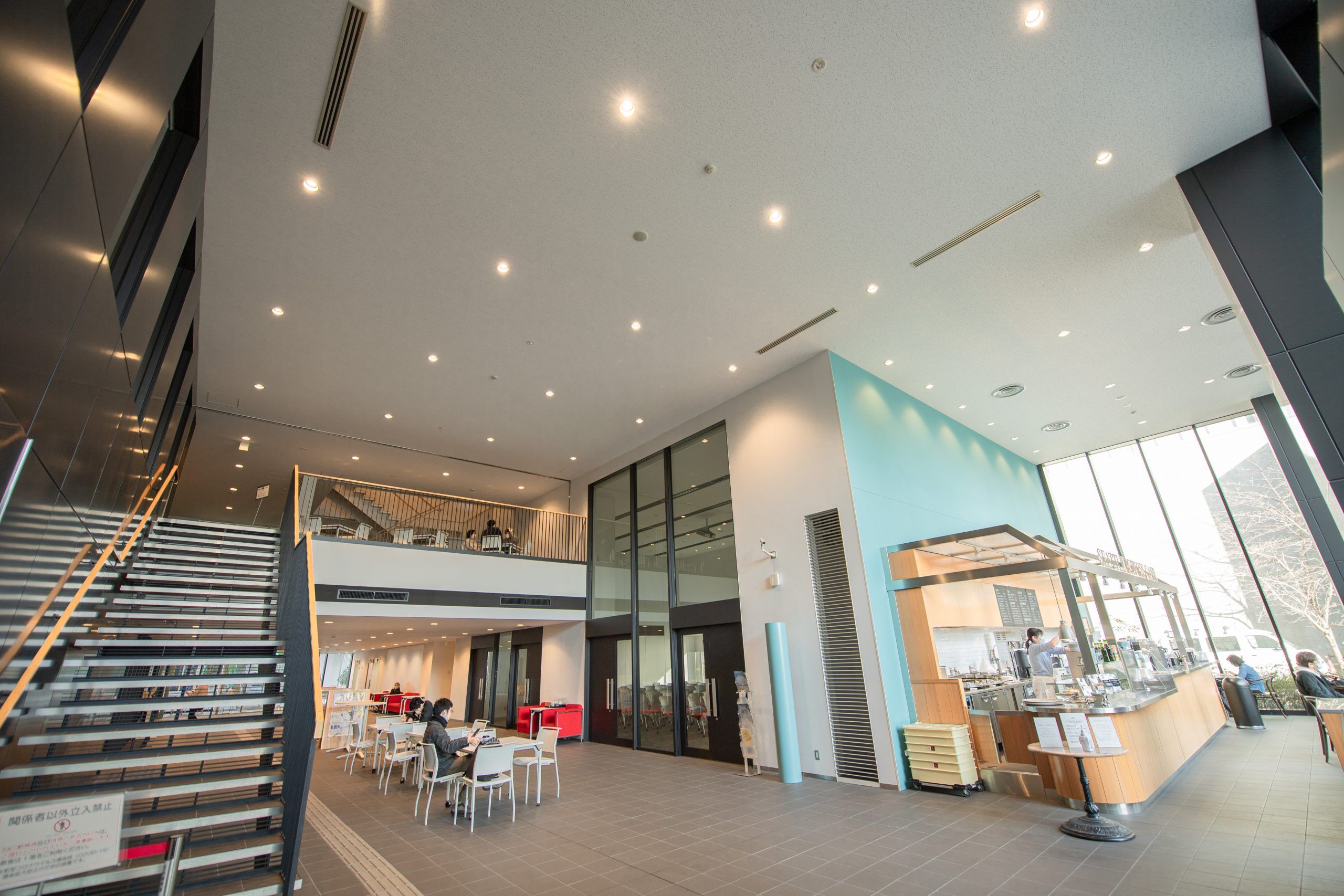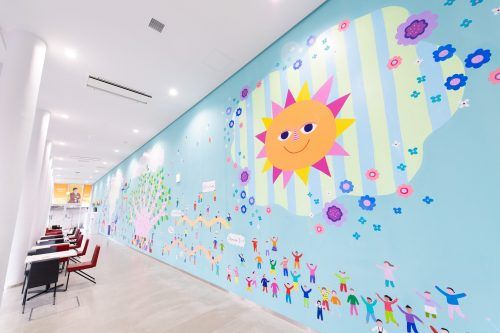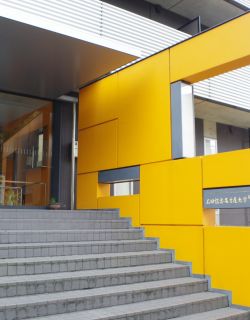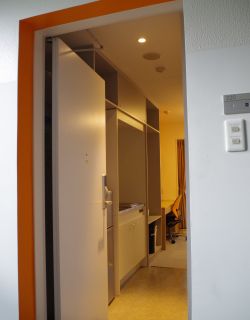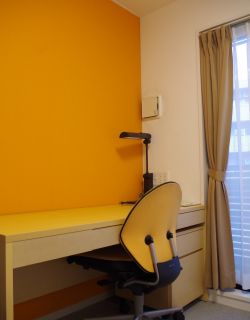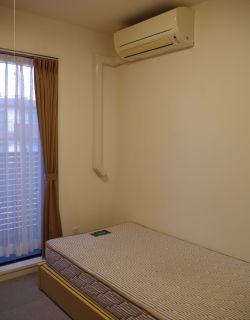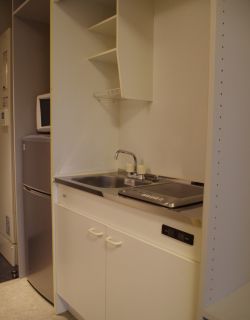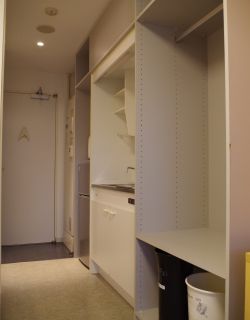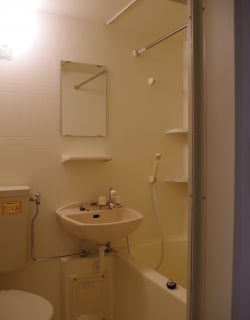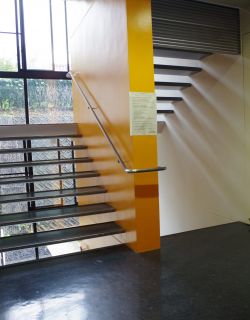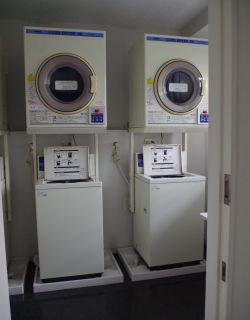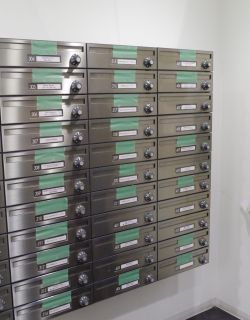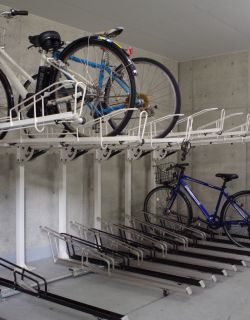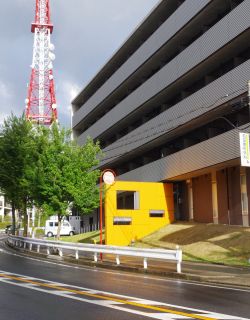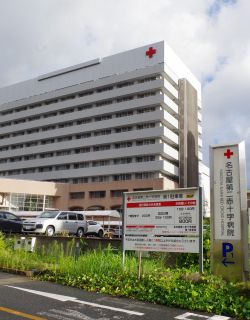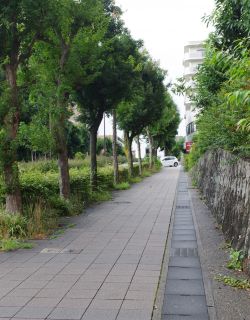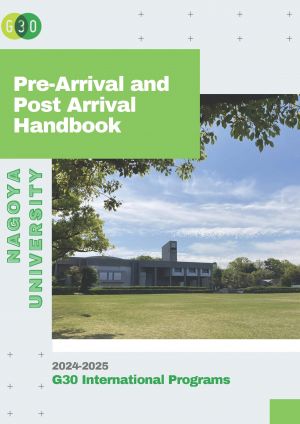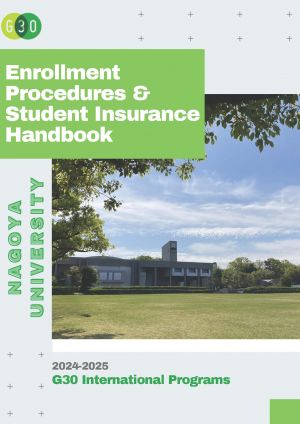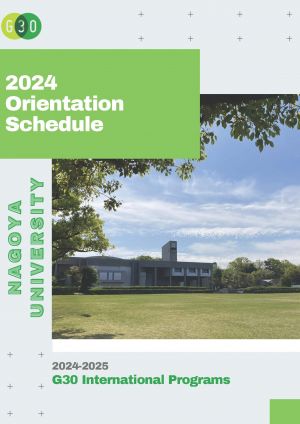Pre-departure and Post Arrival Information
After Acceptance of Admission Offer
April | 1st Round of Successful Applicants
| Read more |
May | 2nd Round of Successful Applicants
| |
June 12 |
| |
July 1 | Publication of Enrollment Instructions & Tuition /Admission Fee Waiver Guidelines | |
Mid- to Late July | Virtual Office Hour (Webinar) | |
August 1 | Submit Official Copies of Final Documents | Read more |
About Ishida Memorial International Residence Myoken
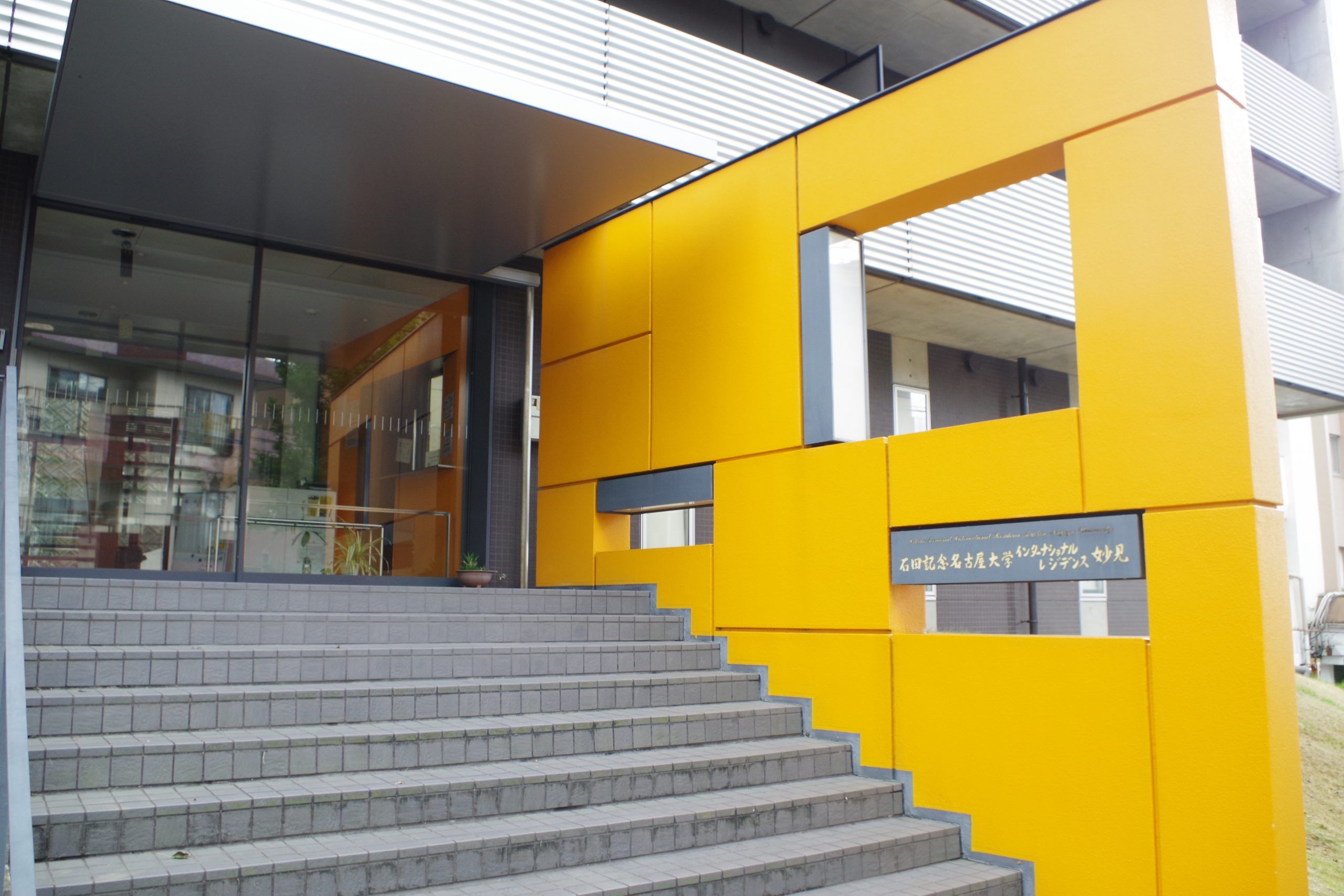
石田記念名古屋大学インターナショナルレジデンス妙見
| Address |
40, Myoken-cho, Showa-ku, Nagoya, Aichi
466-0814
The Ishida Memorial International Residence Myoken is approximately a 15-minute walk from the university’s main campus. There are 93 single rooms, laundry & drier equipped in each floor, and the study room is accessible on weekdays (9:00-21:50) and Saturdays (9:00-16:30).
Pre Departure
August 5 |
| |
Mid-August |
| Read more |
Mid-September |
| Read more |
Handbooks
Last update on September 27, 2024
After Arrival
Mid-September | Ward Office Tour
| Read more |
Information Security Set-up Session | Read more | |
Late September | Orientation Week
Scholarship Paperwork Guidance Open a Bank Account with Post Office |
What is happening during the Orientation Week?
Detailed information will be published as part of the Enrollment Instructions.
Nagoya University G30 Program provides two categories of courses – one is the Liberal Arts and Sciences comprised of classes taught across programs. The other category is the Specialized Subject, which is specifically offered by the program. Serving as a headquarters for planning, designing, and evaluating liberal arts and sciences education at Nagoya University, the Institute of Liberal Arts and Sciences (ILAS) will organize a new student orientation for G30 students.
During the ILAS Orientation, general information regarding Liberal Arts and Sciences courses and the registration process will be covered. Please do not forget to bring your smartphone (or tablet). You need to use two-factor authentication to log in to the Nagoya University’s portal.
**Mandatory for everyone regardless of your actual level of Japanese including Japanese native speakers
Before course registration, all G30 students will sit for a placement test to help G30 Japanese Language Coordinators to assess your current level of Japanese. The course you will be placed into will be carefully decided based on your answers to the Japanese Learning Questionnaire (Form 1) and the placement test which will be held during the Orientation Week. The placement test is only used for the purpose of evaluating your present level of Japanese, so do not feel pressured (you don’t need to study hard during holidays unless you really want to)!
G30 Japanese Language Coordinators will arrange an interview one-on-one after the placement test and give you feedback on a test result. During the meeting, they will also explain the curriculum, course description and credit requirements of the course you are placed into, so if you have any questions or concerns, list them up and talk to the coordinators.
LEVEL:
JLPT N5 – Beginner
JLPT N4-N3 – Beginner to Intermediate
JPLT N2-N1 – Advanced
Recognition of credits based on Japanese Language Proficiency Test
You can get the maximum of 6 credits from taking JLTP N1 and N2 instead of actually studying Japanese 1 (4credits) or Japanese Notation 1 (2 credits). Please note that if you already earn the credits from Compulsory Language and Culture, you may not be qualified to get any additional credits through this program. For details, please talk directly to G30 Japanese Language Education Coordinators during the orientation.
The Physics Assessment Test is an informal measure of your ability in Physics so that G30 Physics lecturers can tailor their teaching to the needs of students taking physics units, particularly in Year 1. The result does not affect your grades at all. Try to revise enough to show us what you can do in Physics – but there’s no need to take it super seriously (unless you want to)!
The Physics Assessment Test will be held mainly for students enrolled in Automotive Engineering (School of Engineering), Physics-Science (School of Science), Chemistry (School of Science and School of Engineering), and Biological Sciences (School of Science and School of Agricultural Sciences).
NOTE: Students enrolled in Social Sciences (School of Law and School of Economics) and Japan-in-Asia Cultural Studies (School of Humanities) do not need to take the assessment tests, unless they plan to take any Year 1 Fundamentals of Physics courses.
What to bring?
- Letter of Acceptance from Nagoya University
- Insurance payment receipt for Personal Accident & Liability Insurance for Students Pursing Education and Research (PAS & LSR)
- Copy of your passport
- Copies of front and back sides of your residence card
- Form 3 “Letter of Guarantee”
…Only for
(1) Japanese passport holders or those with a Japanese permanent resident visa; or
(2) Foreign nationals whose co-signer such as either of the parents currently lives in Japan - Form 4 “Consent Form for the Notification of Credits Obtained”
…Only for students whose co-signer such as either of the parents currently lives in Japan
(The most fun part…!) Ask senior (or senpai) students whatever questions you have. Senpai students might be preparing games and fun activities to entertain newly enrolled students. Come and join the fun!
Although we do not hold assessment test of mathematics, we recommend you review your high school textbooks of mathematics. On the following page you can find information on the mathematics classes offered in coming Fall together with some resources (click here).
Beginning of Academic Year
October 1 | Entrance Ceremony | |
October |
| Read more |
Early to Mid-October | Apply for Tuition/Admission Fee Waiver | |
Late November | Tuition Payment Due (for those not applying for the tuition waiver) | |
Mid-December | Announcement of Tuition/Admission Fee Waiver Result | |
Early March | Apply for Tuition Waiver for Next Fiscal Year (for the Spring and Fall semesters at once) | Read more |
April |
| |
Late May | Tuition Payment Due (for those not applying for the tuition fee waiver) |
G30 Kouhai Check List
Pre-Arrival
- What should I prepare? What is important to bring to Japan?
- Do I need to bring any souvenirs from my home country?
- Should I bring food with me? Is it difficult to continue a certain diet, e.g., vegetarian or religious diet?
- How about electronics? I have heard electronics are cheap in Japan…
- Any country-specific recommendations?
- How and where can I get Japanese SIM card? Do I have to arrange something before arrival?
- Should I learn Japanese before coming to Japan?
- What is the one thing you wish you know before coming to Japan?
Post Arrival
- What are the apps and websites that make a life in Japan easier?
- Any important information for the first days?
- Difficulties and how to overcome them?
- Overall advice on how to adjust to the new life in Japan?
- How is the weather in Japan different from other countries?
